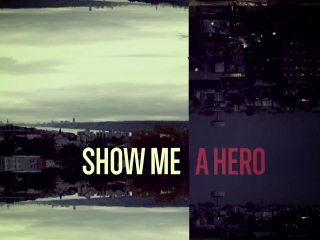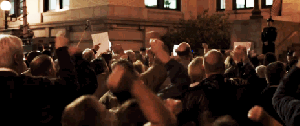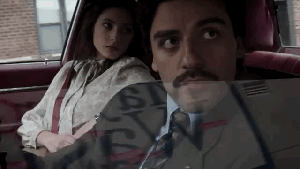“Show me a hero, and I’ll write you a tragedy” ~ F. Scott Fitzgerald.

David Simon, creator of Show Me a Hero and The Wire, fills his work with both heroes and tragedies. With his journalist’s eye and training, he creates shows that shine a light on problems facing urban America, which in turn forces his audience to take a long, hard look at systems and institutions that are broken.
The Wire — widely regarded as one of the best scripted shows of the last decade — is possibly the best example of what David Simon is trying to do through his shows. Season by season, Simon and his team take us to street corners, police departments, courtrooms, schools and finally newspaper offices and show us why the war on drugs is failing and how nobody seems to notice. He slowly and decisively points out how the focus on “numbers” is not helping police forces or schools in the United States succeed. We are introduced to a number of people who are perpetuating the system, trying to change it or just trying to survive.
Show Me a Hero dials us back a few years to the late 80s, to a moment of great turmoil in Yonkers, N.Y. In 1987, a federal judge issued a desegregation order that required the city to build 200 units of public housing on the east side of Yonkers, which was predominantly white. Predictably, the news was not received well by the mostly affluent population living on the east side.

At the same time, Nick Wasicsko, a young and enthusiastic councilman, decided to run for mayor. While campaigning, he opposed the judge’s order, promising to appeal it. Wasicsko won and became the youngest city mayor in the United States at the time.
But, according to the show, Wasicsko’s elation quickly dissipates when he realizes that he must implement the judge’s order to prevent the town from going bankrupt. The rest of his two-year term as city mayor is the very definition of standing between a rock and a hard place. As he makes moves to implement the order he incurs the wrath of the people of east Yonkers. He moves ahead as best he can, gathering votes for the public housing all the while becoming the most hated man in the city. His story is a sad one, but in an effort to stay spoiler-free, I will refrain from writing about how his story ends. Oscar Isaac gives an electric performance as the good-hearted but fallible Nick Wasicsko. He embodies the charming Wasicsko with ease, showing us his very human faults without losing empathy. It is hard not to fall in love with Oscar Isaac.

But this being a David Simon-created show, the story goes much deeper than just Nick Wasicsko. The show also gives us stories of the people who live in public housing as well as a white woman from east Yonkers who goes from vehemently opposing the housing to becoming one of its supporters. Show Me a Hero is decidedly democratic in its storytelling, and as Matt Zoller Seitz points out in a Vulture piece, he gives equal weight to the stories and points of view of people from all walks of life.
What strikes me most about David Simon’s work, which is evident in Show Me a Hero, is his focus on the System as a character. It is the true evil in his shows. His characters are very much products of their circumstances. None of his characters are decidedly good or evil. They are just trying survive, often resorting to violence or corruption. Simon turns an unsentimental yet compassionate lens to the ills of urban American society. There is no romanticizing of the human condition. You generally won’t find tired stereotypes like the “poor man who is actually rich in wisdom” or the “rogue police officer who always stands up for the little guy.” Simon’s work portrays people as they are, and instead focuses on how state and federal institutions affect their lives.
Show Me a Hero, in particular, shines a light on the fact that good intentions are not the only prerequisite for meaningful action. For example, after much dissent, the public house units are built and lower income, mostly black families move in. However, they still face blatant racism and vandalism. Ordinances set down by officials may help encourage integration but can’t truly ensure it. It is the smaller acts of heroism and humanism that ultimately change things, and Show Me a Hero illuminates those everyday choices that help shape the course of history.